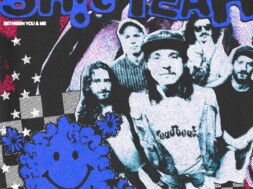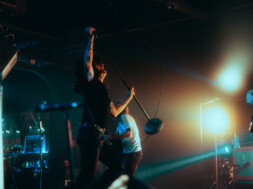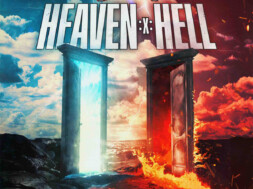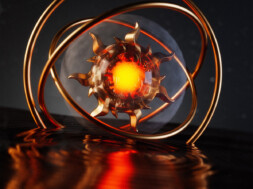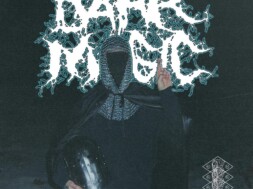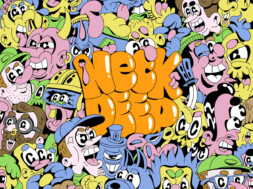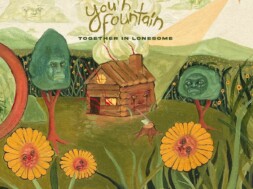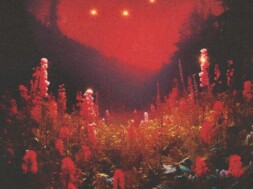
ALBUM: Like Moths To Flames – ‘The Dying Things We Live For’
Like Moths To Flames are looking back to the brutally heavy sound that got them known on their third full-length The Dying Things We Live For. A relentless sense of aggression and end-of-the-rope fixation fill the album, even moreso than we usually hear from the band.
What this spells for the listener is an album that is reminiscent of LMTF’s early work as opposed to the more melodic direction taken on previous release An Eye For An Eye. There is nary a sense of tranquility or a hopeful sound to be heard, which won’t surprise anyone who is familiar with frontman Chris Roetter’s contempt-laced lyricism. In order for the backing instruments to come close to matching such a bleak set of messages and angry vocal delivery, it only makes sense that they beat the ears senseless with a seemingly endless assortment of breakdowns and heavy riffs.
Opener “No King” wastes no time with throwing the album head-first into destructive territory. The mixture of powerful screams and catchy clean choruses becomes the norm across the entirety of the album, but it’s songs like the more upbeat “Fighting Fire With Fire” and closest thing to a melodic moment on the album, “The Give And Take”, that utilize the tried-and-true formula best. As a matter of fact the choruses on this album are both fantastic and show new territory for Chris’ singing. He sings in his highest pitches to-date in “The Art of Losing” and shows a refreshing sense of restraint in the chorus of “History Repeats”. His screams have never sounded better, either. A developed mid-range provides much of the power heard in his screams, but diversity in the higher and lower vocals is played around with moreso than before. “No King” and “Wasted Days” especially showcase Chris’ crushing vocal delivery.
On the first few listens The Dying Things We Live For may come across as being too consistent and not as adventurous as it could be. The album rarely lets up and each song follows a similar structure, but repeated listens reveal hidden depth provided by the unsettling dissonance of Zach Huston’s guitars and Greg Diamond’s unique usage of cymbals. Bassist Aaron Evans gets the bass-tone he rightfully deserves and allows the album a nice, textured low-end. The general sound throughout the album hints at nu-metal influence, but especially that the members of LMTF, specifically Greg Diamond and Chris Roetter, are decently big fans of hardcore and pop-punk. The circle-pit worthy and surprisingly upbeat tempo-change in “The Art of Losing”‘s chorus would work just as well in, say, a Chunk! No, Captain Chunk! song. And those enthusiastic gang shouts belong in a Shai Hulud song. Chris even fits in some hardcore yells for the first time ever. It isn’t a stretch to say that LMTF blend pop-punk and hardcore elements similarly to Chunk! on this release, but it’s their focus on excessive aggression that sets them apart and brings their approach closer to a band like The Acacia Strain.
Although the album features much darkness, it’s to be remembered that through such darkness light can be found. This specific duality has made Like Moths To Flames an emotionally expressive band throughout their career. On The Dying Things We Live For we hear Chris and his bandmates embracing death and fighting the negative feelings life throws our way, but one can’t help but imagine that Like Moths To Flames are far from the grave. What their sound lacks in diversity and surprises, it makes up for with an unparalleled amount of passion and energy. Like Moths To Flames are a consistent group. That same approach has worked for the Hatebreeds and Terrors before them, so why would LMTF switch up an identity that they bear so well? Their fans will love this album.


